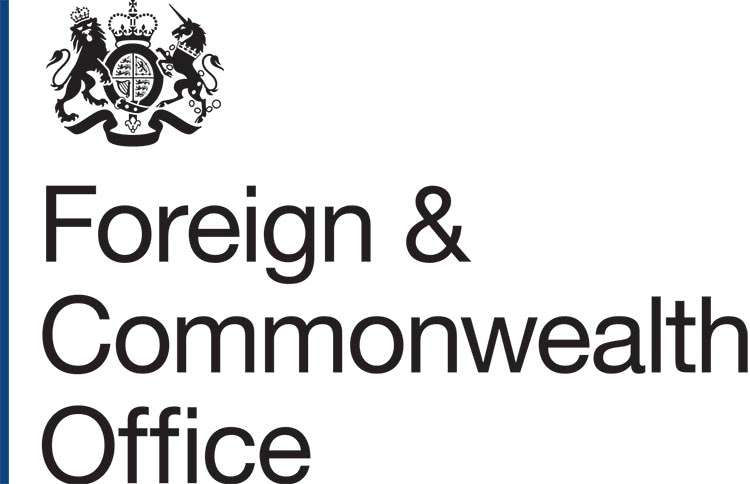Foreign Office faces ‘considerable challenge’ to ensure it has the skills required post Brexit

The Foreign and Commonwealth Office (FCO) cannot expect ‘Premiership talent’ with ‘Championship salaries’, says Foreign Affairs Committee.
The Government risks the prestige of the Foreign and Commonwealth Office as an employer by failing to clarify the purpose and role of the department in Government; struggling to prioritise and foster the range of skills needed for modern diplomacy; and failing to pay comparable salaries across government departments, resulting in the loss of experienced staff.
In a Report published today (28 Nov), Delivering Global Britain: FCO Skills, MPs on the Foreign Affairs Committee consider the broad skills required to deliver diplomacy in a changing world and sets out measures the department should take to get up to speed.
The challenges currently facing the FCO are significant, and in many ways, unprecedented, says the Committee. The machinery of Government has changed over the last two decades leaving foreign policy responsibilities fragmented. Work must be delivered against shifting contexts: leaving the EU, the evolving roles of China and Russia, and the impact of new technology.
The FCO is not helped by uncertainty over its purpose in Government. Once again, the Committee calls for the Government to properly define ‘Global Britain’ and the FCO’s role in delivering it. Without a clear sense of what the Foreign Office exists to do, the Report concludes that a proper assessment of the skills it needs – is impossible.
Chair of Committee, Tom Tugendhat MP, said:
“Britain’s diplomats and Foreign Office have been among the best in the world and one of the jewels in the crown of the British civil service. Recently, the Committee has had cause to question that. Our Reports have documented a lack of clarity about the Government’s flagship policy, Global Britain; concerns about levels of staffing across EU member states and specific failures of diplomacy such as the 2017 elections to the International Court of Justice. All of this prompted my Committee’s inquiry into skills at the FCO.
“To maintain and strengthen our place in Europe and the wider world as we prepare to leave the EU, we need an agile and experienced Foreign Office and that means hiring and keeping the best staff. The prestige of the Foreign Office as an employer hangs in the balance.
“The Foreign Office needs to make sure it has the skills required to deliver ‘Global Britain’. As things stand, we believe the FCO faces a considerable challenge to ensure it has the skills it will need for diplomacy after Brexit, in Europe and beyond.”
Among the recommendations, the Committee includes:
Salaries:
Drawing on data from the Cabinet Office, the FCO revealed it pays the lowest median of any Government Department for policy officers and middle management officers. Seventy percent of those leaving the FCO cite poor pay as the main reason.
The Committee urges the Government to look at options for improving the pay offer at the FCO, both for centrally contracted staff and for local hires abroad. The Report calls for an external review to keep the reward package of officials doing similar jobs at FCO and the Department for International Development in line.
Defining priority skills:
The FCO lacks systematic data on the existing skills of its staff and the extent to which they are meeting skills-development targets. The Report recommends that the Department carries out a skills audit no later than the end of 2019 and that by 2020, the FCO reboots its Priority Skills Statement. This should take account of best practices adopted by other diplomatic services.
The Committee calls for the FCO to set out its assessment of the new skills it will need for European diplomacy post-Brexit, including future plans for the UK Representation to the EU in Brussels. It also questions whether targets to train 240 cross-government staff to expert level in trade policy and negotiations by March 2019 will be met and asks for the FCO’s plans to meet any shortfall.
Senior appointments:
Tentative steps have been taken but the FCO needs to go ‘further, faster’, to have the fullest range of talent at its disposal. The Foreign Secretary’s announcement that Ambassadorial appointments will be open to external competition is not a major departure from existing policy. Extending open competition to more roles and taking practical steps to make them as accessible as possible to external candidates, could demonstrate more ambition about seeking high-quality external candidates to complement high calibre existing staff.
Language skills:
FCO language skills are improving, but the Committee reports that existing targets for language attainment will be challenging to reach. While there is relatively high attainment in Mandarin, the Committee is concerned about lower figures for Russian and Arabic. The Committee warns that the Foreign Secretary’s ambitious plans for expanding language skills will require considerable extra resources which have not yet been put in place.











Responses